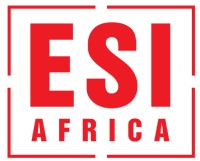South Africa: Call for input on draft water rehab guidelinesSouth Africa: Call for input on draft water rehab guidelines
The aim is to strengthen the protection, use, conservation, management and control of water resources in an efficient, sustainable and equitable manner in SA
The Department of Water and Sanitation in South Africa has invited stakeholders to submit comments on the Draft Rehabilitation Management Guidelines (RMGs) for Water Resources by 29 October.
Developed in line with Chapter 3 of the National Water Act (Act 36 of 1998), the guidelines aim to strengthen the protection, use, conservation, management and control of water resources in an efficient, sustainable and equitable manner in South Africa.
According to the department, the RMGs, which have been under development since 2020, provide step-by-step measures to guide water users in rehabilitation measures/interventions that can be followed for each water resource.
“The guidelines identified and categorised five water resource themes into rivers, wetlands, estuaries, groundwater, as well as lakes and dams, as per the definition of the NWA, and further outline five phases to be followed to undertake the process of rehabilitation,” the department said in a statement.
5 rehab phases for water management in South Africa
They include:
- Diagnostic Phase, which entails determining the conditions and the type, size and extent of impacts on characteristics of watercourses.
- Planning and Assessment aimed at the assessment and collation of available information from maps and datasets on the affected watercourses and the review and assessment of legal considerations.
- Defining Rehabilitation Objectives, which provides the objective of rehabilitation to ensure the impacts on the characteristics of watercourses are addressed.
- Execution Phase, which involves providing recommendations on techniques and methods to address impacts identified. Consideration is also given to the protection of water resources, ecosystem services, people and livelihoods.
- Monitoring, Evaluation and Reporting Phase, which involves overseeing the monitoring, evaluation and reporting of maintenance and rehabilitation interventions.
Public consultations held so far
The department recently held a public consultation in Pretoria, bringing together stakeholders from government, catchment management agencies, water boards, research institutions, civil society and the private sector.
The meeting was used to discuss the draft guidelines and proactive measures to address water quality degradation promote rehabilitation and restoration to maintain water ecosystem function.
Consultations have also taken place through sector platforms such as the Project Steering Committee, Freshwater Ecosystem Network, Catchment Management Fora, Western Cape Estuaries Task Team, and intergovernmental engagements between Water and Sanitation, Department of Forestry, Fisheries and the Environment (DFFE), Water Research Commission (WRC), as well as the 2024 Wetland Indaba.
“Stakeholders are expected to provide inputs on the draft guidelines [covering] rivers (Volume 1), wetlands (Volume 2), estuaries (Volume 3), lakes and dams (Volume 4), and groundwater (Volume 5), including Guidelines in Practice Report by no later than 29 October 2025.
Cover photo: One of the water infrastructure installations set up in a community in Tshwane recently. Source: Rand_Water/X


